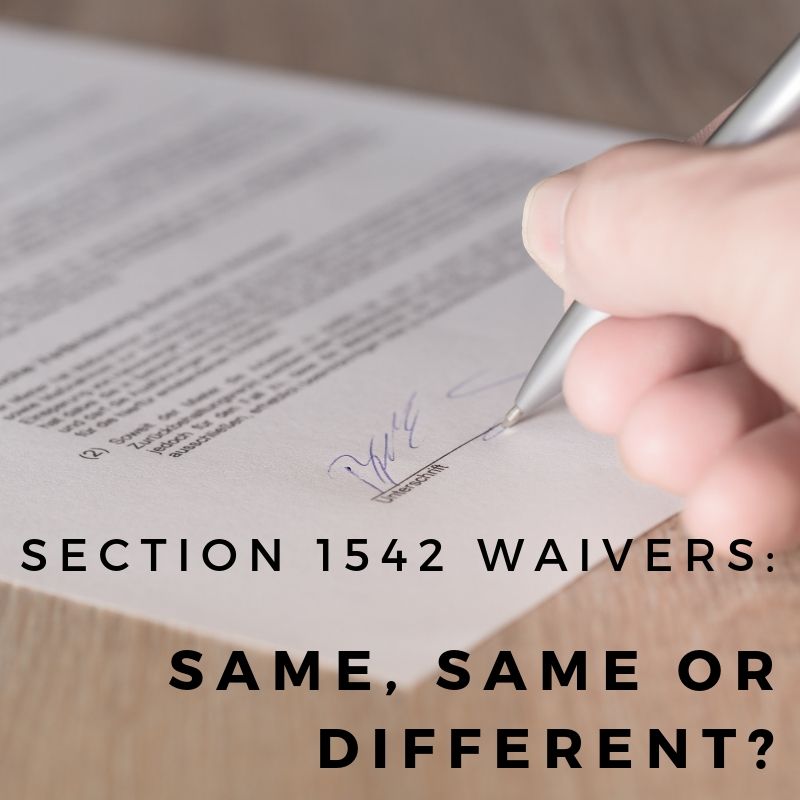|
Civil Code Section 1542 waivers are commonly included in many types of transactional documents. As corporate lawyers for California startups and small businesses, we often cite to this waiver when settling out claims against our clients brought by former co-founders, employees, and investors.
Section 1542 purports to prevent a claimant from inadvertently waiving unknown claims. Including a recitation of Civil Code Section 1542 and a waiver of its provisions in a settlement agreement ensures that the releasing party (i.e., in our case, the former co-founder, employee, or investor) consciously releases any unknown claims that s/he may later discover. The recent change to Section 1542 became effective as of January 2019 pursuant to California Senate Bill 1431, and gave us pause. The original release language read as follows: “A general release does not extend to claims which the creditor does not know or suspect to exist in his or her favor at the time of executing the release, which if known by him or her must have materially affected his or her settlement with the debtor.” The amended release language now reads: “A general release does not extend to claims that the creditor or releasing party does not know or suspect to exist in his or her favor at the time of executing the release and that, if known by him or her, would have materially affected his or her settlement with the debtor or released party.” The most significant amendment is the change from “must” to “would” in the second to the last line of the release. One might conclude that “would have materially affected” is a lesser standard than “must have materially affected,” rendering vulnerable, to some degree, settlement agreements lacking an express waiver to Section 1542, as to unknown claims. However, due to the lack of case law interpreting the amended language, the extent to which this change from “must” to “would” is a phantom distinction has yet to be revealed. Smith Shapourian Mignano PC is available to answer any questions or concerns you may have regarding a Section 1542 waiver. This blog does not constitute solicitation or provision of legal advice, and does not establish an attorney-client relationship. This blog should not be used as a substitute for obtaining legal advice from an attorney licensed or authorized to practice in your jurisdiction. You should always consult a suitably qualified attorney regarding any specific legal problem or matter in a timely manner, as statutes of limitations may bar your claim. Comments are closed.
|
Archives
February 2023
Categories
All
|
© 2023 SSM Law PC. All Rights Reserved.
Privacy Policy
Terms of Use
Accessibility Statement
Attorney Advertising
Client Reviews & Testimonials

 RSS Feed
RSS Feed